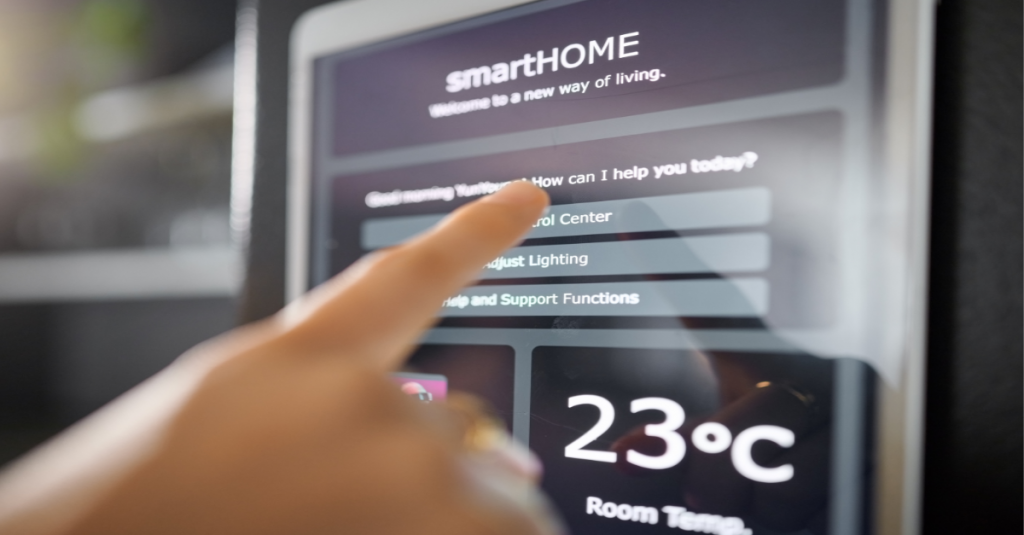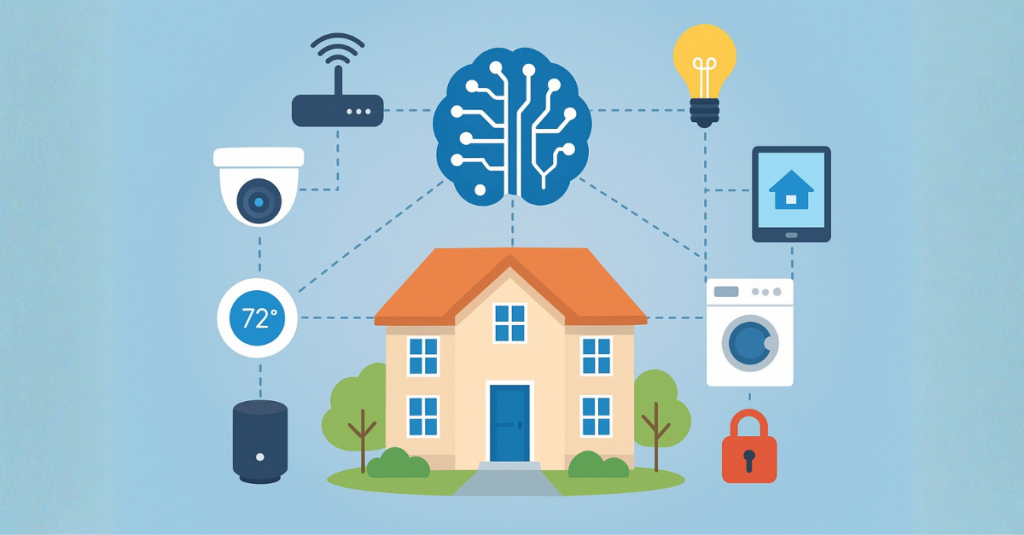The property market is shedding its skin. We’re leaving the world of static bricks and mortar for one where buildings think, learn, and communicate. For investors, this isn’t science fiction. It’s the new battleground for value. Embracing smart tech and AI is how you future-proof your portfolio. It’s how you win for the next ten years. A property’s worth is now measured in data points and efficiency ratings. A smart home does more than just turn on the lights. It’s a living system that cuts costs, commands higher rent, and protects your investment from the inside out.
From Gut Feel to Data-Driven Due Diligence
Experience matters. But it’s no match for an algorithm that drinks entire cities of data for breakfast. It chews through school ratings, traffic flows, and local business health before your coffee gets cold.
Imagine analytical tools that:
- Identify Undervalued Potential: A tool that spots the next high-growth suburb – not by a hunch, but by tracing the paths of new infrastructure and shifting demographics.
- Precision Valuation: A price tag forged from thousands of data points, giving you a figure that whispers the true story of a building’s past and future.
- Simulate Renovation ROI: A simulator that lets you test a kitchen renovation and see the exact rent bump it will generate.
This is the new due diligence. It’s the art of finding the right asset, backed by hard numbers.
Smart Systems: Calculating the Premium on Efficiency

A smart thermostat is more than a gadget. That little device on the wall? It’s not a toy. It’s a signal to tenants. It says, “This home is efficient, modern, and designed to save you money.” That signal cuts your costs and builds your returns.
Think of a building that almost runs itself.
- Tenants get lower utility bills. Happy tenants stay longer.
- Your property stands out in a sea of dated listings.
- You’re not just offering a roof. You’re selling a simpler life, and people will pay for that.
This is where property investment technology directly impacts your bottom line.
Predictive Analytics: From Reactive to Proactive Management
This is the crystal ball of property management. Predictive analytics uses data to see the future. It turns panic into planning.
- No more capital shocks: Get a quiet alert that the HVAC will fail in nine months. Replace it on your schedule and your budget.
- Cheaper repairs: A $50 fix today is your shield against a $5,000 replacement tomorrow.
- Happier tenants: Solve issues before they ever become a 3 a.m. emergency call.
The IoT Network: Your Property’s Central Nervous System

A network of simple sensors turns your property from a passive asset into an active partner. This is the foundation of IoT in real estate, giving buildings a voice and owners control.
- Water sensors can prevent thousands of dollars in damage by providing an early warning.
- Smart locks reduce the management burden and cost of granting access to contractors and tenants.
- Usage monitors on appliances provide data to warrant proactive maintenance.
These small, automated acts save money, reduce stress, and protect your investment from the inside out.
AI-Powered Marketing: Efficiency at Scale
Digital tools are revolutionising tenant acquisition. A high-quality virtual tour is open 24/7, letting qualified renters explore from their couch. An AI chatbot handles the midnight questions and books the tours.
The benefit is a dramatic increase in operational efficiency, letting you focus on complex tasks and high-value interactions. This is the beginning of AI-powered property management, where automation supports owners and managers at scale.
Navigating the Risks: A Strategic Implementation Plan
This power comes with new problems. A haphazard approach will cost you.
- Data Security & Privacy – Tenant information and access codes need a digital vault.
- Technology Obsolescence & Integration – Smart locks, lights, and thermostats must speak the same language. Isolated gadgets are just expensive clutter.
- ROI-First Mindset – Every single investment must have a clear path to higher income or lower costs.
The strategy is to start with a pilot. Start with a single, painful problem like water damage and solve it. Measure the result, then scale. Thoughtful adoption keeps pace with fast-moving Proptech trends without unnecessary risk.
The Future: Towards Integrated Portfolio Intelligence

The endgame isn’t a smart property. It’s a smart portfolio. Imagine a ‘digital twin’ – a live, virtual copy of your building.
This allows you to:
- Stress-Test Decisions: Simulate rent hikes, new features, or renovations before you invest.
- Optimise Portfolios: Use AI to decide whether to hold, sell, or upgrade assets for better returns.
This evolution will also reshape property development, where projects are designed from day one with data-driven intelligence and tenant-ready smart systems.
Case Study: A Calculated Transformation
The Problem: A 20-unit building was bleeding cash. High turnover. Sky-high energy bills. An aging heart.
The Diagnosis: The numbers pointed to two villains: wild utility swings and surprise maintenance.
The Prescription: A phased implementation began:
- Phase 1 (Stop the Bleeding): Smart thermostats and leak sensors were installed.
- Phase 2 (Predict the Future): An analytics platform was plugged in. It immediately flagged the building’s boiler as a ticking time bomb.
The Result: The boiler was replaced on their terms, avoiding a winter catastrophe. Energy costs plummeted 18%. They rebranded the property as a “modern, efficient home” and raised rents by 8%. Tenant turnover slowed to a trickle. Within two years, the building’s value jumped 22%.
Final Thoughts: Intelligence as a System, Not a Product
The next ten years will separate the buildings that thrive from those that simply exist. One will fade and the other will appreciate.
As Deepak Mandy puts it: “We’re no longer just landlords. We’re curators of intelligent ecosystems. A property with a brain will always outperform one without.”
You’ve always chosen your investments by location. Now, the question is simpler.
Will your next property be smart? Or will it be left behind?
